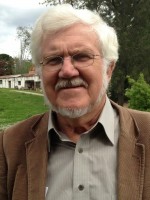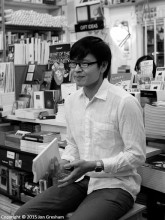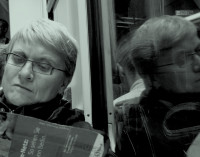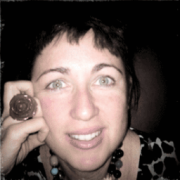Ivy Alvarez
 Ivy Alvarez is the author of Disturbance (Seren, 2013) and Mortal (2006). Her latest chapbook is Hollywood Starlet (dancing girl press). Her poems appears in many publications, including Best Australian Poems, with several translated into Russian, Spanish, Japanese and Korean. Born in the Philippines and raised in Australia, she lived many years in the UK before moving to New Zealand. www.ivyalvarez.com
Ivy Alvarez is the author of Disturbance (Seren, 2013) and Mortal (2006). Her latest chapbook is Hollywood Starlet (dancing girl press). Her poems appears in many publications, including Best Australian Poems, with several translated into Russian, Spanish, Japanese and Korean. Born in the Philippines and raised in Australia, she lived many years in the UK before moving to New Zealand. www.ivyalvarez.com
What Clara Bow Stole
Walking through Kowloon Park, I blow
to cool my gai-daan-jai — steamy treats
crunchy-sweet. Ooh, that fool director’s so beastly!
Don’t speak, he’d said, look pretty.
Too easy. Winking, I opened wide,
facing his one dark eye. Boop-boop-be-doo!
We knew. I won. Plunge fingers,
twist off pastry pieces and chew. A man,
his wife, sit, leaning on each other in the dark.
It scratches my heart. When I stole
my mother’s coat, after she held the butcher’s
knife to my throat, it scratched like that.
One more bite. Just like her, I’m committed
to my paper bag, my asylum of sweetness.
What Ava Gardner Delivered
Under the bridge, a dim lagoon.
Slow notes from a saxophone
glow in the trees. The pool
becomes a black sky, fallen leaves collapsed stars.
Angel, he calls me. Frankie’s name for me. I remember how he
stroked my skin, his wedding ring scratching my chin
as I stood to deliver us from the second gift
of my belly. Afterwards, he gave me jewellery.
Here I am a raven calling out to borders, guards,
the staring crowds: goodbye.
A soldier looks into my eyes, murmurs
something low and kind to me.
I fold into my dark coat,
say thank you.







